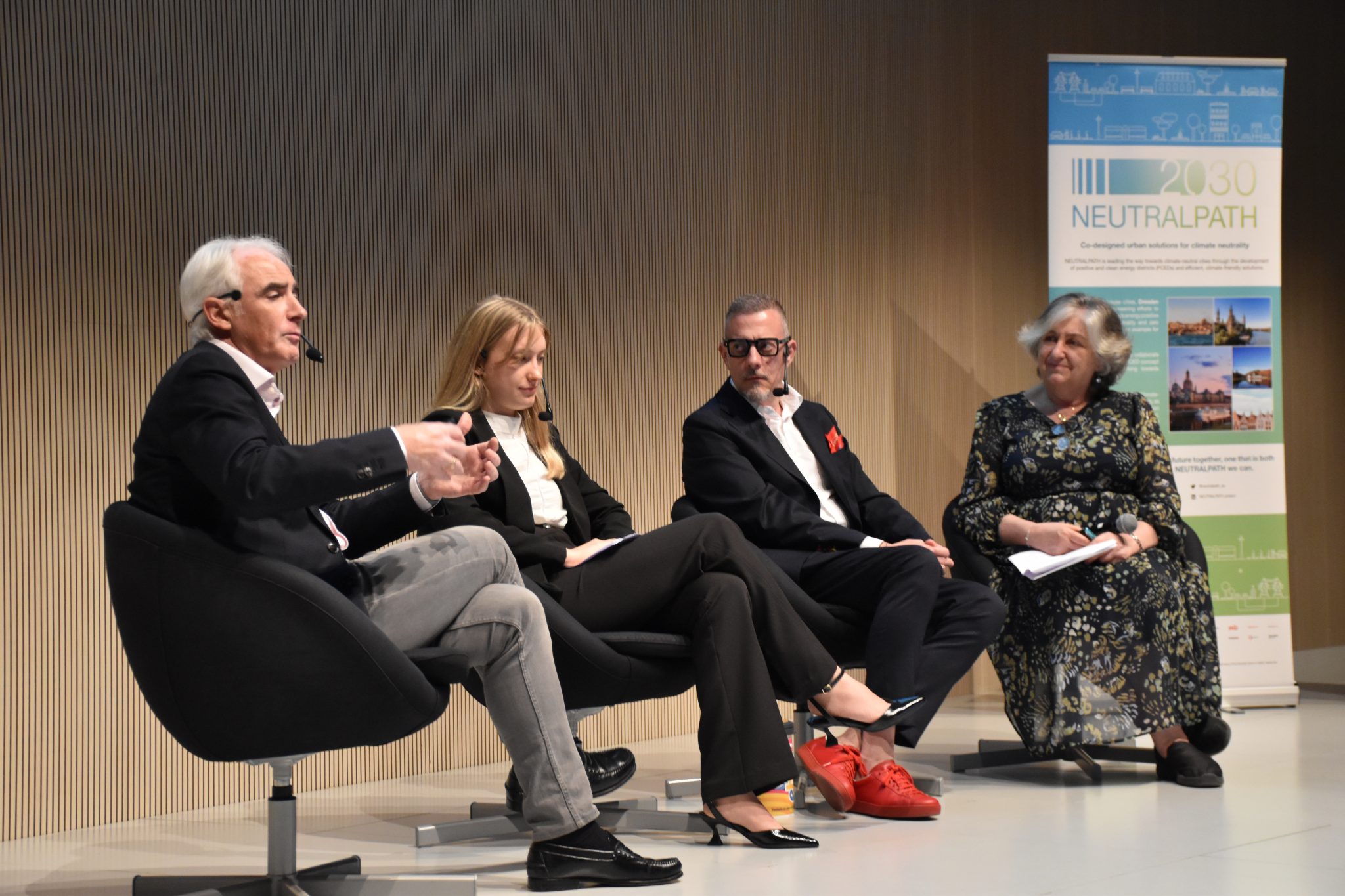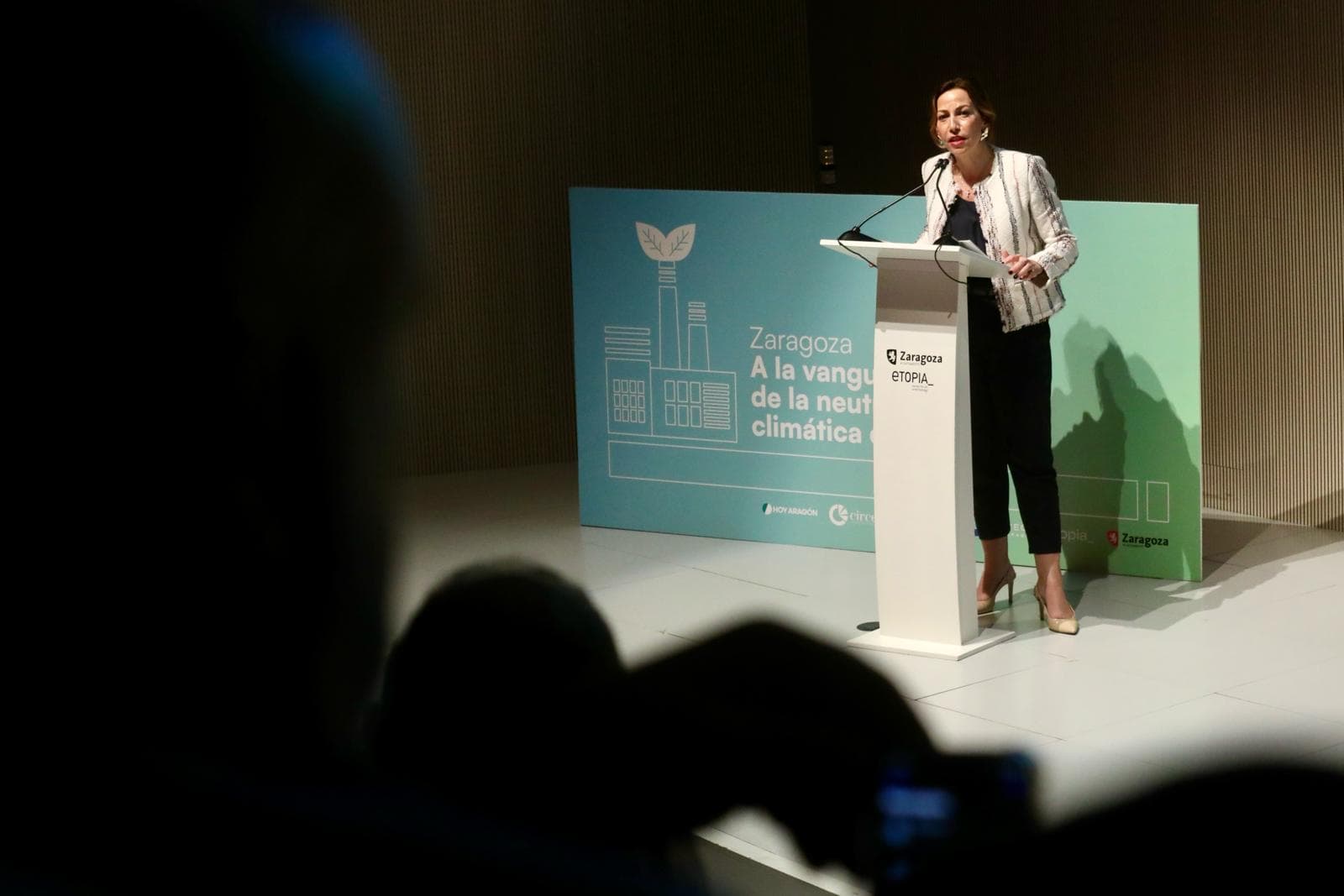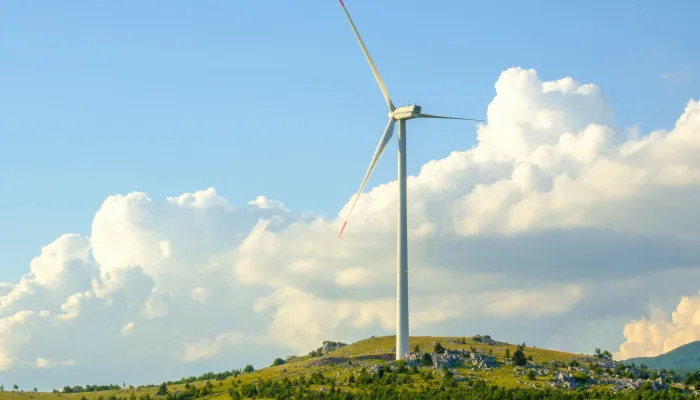Decarbonisation: fad, obligation or profitable strategy for your company?

Is decarbonisation profitable? The answer to this question was the central theme of the conference 'Zaragoza at the forefront of climate neutrality in Europe', organised at ETOPIA by CIRCE-Technological Centre and Zaragoza City Council, in collaboration with CEOE Aragon, the Spanish Centre for Innovation in Climate Change - part of the European initiative EIT Cimate-KIC - and the Neutralpath research project.
During the event, sustainability experts, business leaders and politicians discussed the sustainable future of cities and the crucial role of business in the transition to climate neutrality. Representatives from Schneider, Grupo Indigo, Ferrovial, Saica, Linamar Light Metal, Eboca or CEFA presented their success stories in the decarbonisation process. The conference was also attended by the CEO of the EIT Climate-KIC Knowledge and Innovation Community, Kirsten Dunlop, the Councillor for Finance and European Funds of Zaragoza City Council, Blanca Solans and the Mayoress of the city, Natalia Chueca.
One of the main conclusions of the conference was that decarbonisation is not only a regulatory obligation, but also a viable economic opportunity for companies of any size and sector. What is essential is to have a plan that evaluates all the technologies and resources available on the market, from operational measures to medium-term investments, and to focus on those that are profitable in the short or medium term.
Thanks to these plans, some of CIRCE's technology partners have already achieved great benefits. Ebroacero, a steel company, has managed to reduce heat losses and therefore gas consumption by 59%. CEFA, a Stellantis supplier, has increased its energy efficiency by around 9% thanks to the monitoring of 85% of its Zaragoza plant. And a shopping centre management company has reduced waiting times in its car parks by 50% thanks to the implementation of a sustainable mobility plan.
Moreover, in the public sphere, the 15 projects coordinated by CIRCE-Technology Centre in the three years of Horizon Europe alone have attracted more than €25m in subsidies for Aragonese entities and €40m for Spanish entities.

Why are decarbonisation plans so important?
A decarbonisation plan is a comprehensive strategy that seeks to reduce and eventually eliminate Greenhouse Gas (GHG) emissions associated with its operations. This involves adopting clean technologies, improving energy efficiency, using renewable energy sources and implementing sustainable practices throughout the value chain.
Decarbonisation plans go beyond simple cost savings; they represent a comprehensive strategy that opens doors to numerous competitive and financial advantages. Companies not only achieve reductions in operating costs through increased energy efficiency and resource optimisation. They are also favourably positioned to access new sources of financing. This includes a variety of competitive European funds, which often prioritise projects committed to sustainable practices and carbon footprint reduction.
In addition, decarbonisation plans prepare companies to proactively adapt to future environmental regulations. With increasingly stringent regulations around sustainability and carbon emissions, anticipating these regulations not only avoids potential penalties, but also positions the company as a responsible and visionary leader in its sector.
On the other hand, they encourage the development of new economic models, particularly those based on the circular economy. This approach, which promotes the reuse and recycling of materials while minimising waste, is not only beneficial for the environment, but also opens up new market opportunities and fosters business innovation. The adoption of circular practices can lead to the creation of new products and services, thus generating new sources of revenue and competitive differentiation.
Last but not least, decarbonisation plans also strengthen companies' corporate responsibility. By committing to sustainability, companies enhance their reputation and credibility with customers, investors and the wider community. This extended corporate responsibility not only improves the company's public image, but also attracts and retains talent, customers and business partners who value and prioritise sustainability.

Zaragoza, at the forefront of climate neutrality in Europe
During the closing ceremony of the event, Natalia Chueca highlighted the role of the Aragonese capital as one of the 'lighthouse cities' selected by the European Commission to serve as a driving force and inspiration in the decarbonisation processes, and invited the business community to join the Climate Neutral Cities Mission to accelerate the energy transition process, position themselves as leaders in innovation and sustainability and prepare for the future.
Chueca ratified this commitment and highlighted the value of public-private collaboration to achieve the goal of climate neutrality by 2030, hand in hand with partners such as CIRCE-Technological Centre and the local productive fabric. The Aragonese capital is becoming a reference at European level for its sustainability policies, as was also recognised by the national and international entities present at the event.
"The goal of climate neutrality will not be achieved without the involvement of all companies, large and small. Understanding that SMEs and the self-employed do not have the same facilities or means as large companies to face this transformation", concluded the mayoress.







